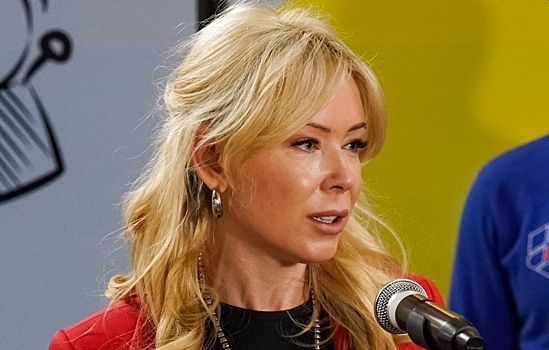10 signs of encephalitis in children.
Eight dangerous signs of excessive sleep in a four-month-old baby. Babies are the apple of their mother's eye, and a four-month-old baby needs sufficient sleep for their development. However, excessive sleep can also be harmful. Below are eight dangerous signs of excessive sleep in a four-month-old baby.
Eight Dangerous Signs of Excessive Sleepiness in a Four-Month-Old Baby: 1. Severe lack of oxygen in the brain 2. Liver problems 3. Diabetes 4. Cerebral hemorrhage 5. Elevated blood pressure 6. Sleep apnea 7. Signs of heart disease 8. Anemia If a baby exhibits these symptoms, it should be taken seriously, and the child should be brought to a reputable pediatric hospital for necessary examinations. These may include CT or MRI scans of the head, ultrasound and liver function tests for the liver, screening for blood sugar levels, blood pressure measurement, color Doppler examination for the heart, and routine blood and urine tests.
Generally, if a child shows signs of excessive sleepiness, the first thing to check is whether the child has a fever. If there is a fever, the cause should be promptly identified. If the child is excessively sleepy without a fever, it needs to be taken seriously. Medication can be used appropriately for patients with fever, while babies who are sleepy without a fever should seek medical attention promptly. If a child who is usually active suddenly becomes calm and has a fever, parents should promptly take the child to receive medical treatment to avoid delaying the condition. As long as timely treatment is given, the baby can grow up healthy and strong.
Four-month-old baby's 8 dangerous signs of excessive sleepiness What to do if a baby is excessively sleepy and refuses to eat Excessive sleepiness and refusal to eat in babies may be a sign of entering a milk refusal period. Over 50% of babies aged four to six months will experience a milk refusal period, and some babies may experience it around three months. First, it is important to understand the reasons why the child does not want to drink milk. There are many possible reasons, including:
1. Curiosity: Curiosity is filled with everything around them, making it easy for them to be distracted and unable to concentrate on drinking milk. 2. Tendency to get bored quickly: They no longer only like milk powder and want to try other foods. 3. Poor environmental atmosphere: Wearing too many clothes, a stuffy and hot home, feeling uncomfortable due to scolding or other reasons.
4. Slowing growth rate: The demand for nutrition and calories is not as high as it was in infancy. 5. Illness: Non-disease-related refusal to drink milk is quite common. Therefore, parents should try to observe and take care of the baby with more thought and patience, as the baby cannot express themselves and still relies on the parents' careful understanding of the reasons to meet their needs.
As long as the baby's growth curve is within a reasonable range, they are in good spirits, and there are no discomfort symptoms, do not force them to eat! Reduce external stimuli during feeding. If there are constantly people walking around or noisy sounds in the surroundings, it can easily distract the baby's attention and reduce their appetite. Therefore, providing the baby with a quiet eating environment is very important. Also, it is important for the baby's bottle nipple to be suitable. If the milk hole is not easy to suck or if the milk drips too slowly or too quickly, it can cause discomfort for the baby and worsen their refusal to drink milk. If despite all efforts, the baby still doesn't like to drink milk, you can choose alternative foods with similar nutritional content, such as fish porridge or bone soup, to supplement their nutritional needs.
What are the signs of excessive sleep in a four-month-old baby? Although newborn babies have longer sleeping hours, if it exceeds the normal standard, parents should consider if the baby is sick. Excessive sleep duration in a baby could be a sign of hypersomnia. On average, a one-month-old newborn sleeps about 22 hours a day; a two-month-old baby sleeps around 18 hours a day; a three-month-old infant generally sleeps about 16 hours a day. After six months, babies typically sleep for 12 to 14 hours. Afterwards, the sleep time gradually decreases. If a baby's sleep time exceeds the above standards, there is a higher possibility of excessive sleepiness. Apart from excessive sleep duration, other symptoms of excessive sleepiness in infants include:
Of course, the appearance of excessive sleepiness in infants does not necessarily mean that they have narcolepsy; it could also be caused by other diseases. For example, babies with visual problems may have sleep issues, and infants with colds and fever may also experience excessive sleepiness, especially when taking cold or allergy medications (which can have side effects). The presence of excessive sleepiness in infants may also indicate a serious illness, such as viral encephalitis or Japanese encephalitis.
Dreaming of signs of purulent meningitis, especially if there are continuous clusters, is considered very auspicious. It is particularly favorable for those who have a preference for water. There may be a great force or power at a certain point in time, leading to significant growth and gaining fame and profits. However, if one's conduct is improper and actions are not corrected, both victory and defeat will be extreme and short-lived, ultimately resulting in ruin and dispersion, like a dream that ends in sorrow and leads to a lonely and solitary life. [Moderately auspicious]
Good and Bad Luck Index: 83 (for reference only, does not represent the position of this website) "Recommended": It is recommended to be prepared for the worst, to sunbathe, and to walk. "Not Recommended": It is not recommended to see a traditional Chinese doctor, to walk a dog, and to seek medical advice.
For pregnant women dreaming of purulent meningitis, it indicates the birth of a girl. If the dream occurs in winter, it suggests the birth of a boy. Be cautious about the possibility of miscarriage and exceeding the due date. Dreaming of purulent meningitis indicates that competitors are seeking information related to you. Confidential documents should be more strictly guarded. Be careful not to accidentally reveal personal privacy in the market. Also, remind others not to leak the information. Additionally, pay attention to proper etiquette when dealing with elders, and abide by boundaries to maintain a good impression, which will be helpful in the near future.
For a person in business, dreaming of purulent meningitis represents strengthening internal operations. After experiencing difficulties, they will succeed. For a student, dreaming of purulent meningitis means that their performance in science subjects is not ideal. However, it does not affect the overall situation and they can still be admitted.
For someone in a romantic relationship, dreaming of purulent meningitis indicates misunderstandings and verbal disputes. As long as they understand and forgive each other, they can get married. Dreaming of purulent meningitis, according to the analysis of the Five Elements in the Book of Changes, the lucky number is 8. The peach blossom position is in the southwest direction, and the wealth position is in the due west direction. The auspicious color is red, and the auspicious food is chili pepper.
For people who are planning to travel and dream of purulent meningitis, it is suggested to postpone the trip due to strong winds and sandstorms. For people in their zodiac year who dream of purulent meningitis, it means that perseverance is needed in everything, although there may be setbacks, in the end it will turn out well, but there may be failures in autumn.
People in love dreaming of meningitis may lose confidence due to the interference of malicious individuals, but they should consider more and may be able to get married. People born in their zodiac year dreaming of tuberculous meningitis means they should be wary of being framed by malicious individuals, which may result in financial losses or physical discomfort.
Dreaming of tuberculous meningitis indicates that love encounters are going well. Attending gatherings with friends may easily lead to meeting a suitable partner. These days are also great for shopping, as you may find some high-quality and affordable items. Students' thinking today is particularly active, which can help them complete their assignments more quickly.
For travelers who dream of tuberculous meningitis, it is recommended to delay going out for another day or two. For business people who dream of meningitis, fortune is obtained in the spring, but it is not favorable for wealth in the summer. Dreaming of a structure or building signifies that you will worry about trivial matters in life.
Dreaming of meningitis, according to the analysis of the five elements in Zhou Yi, the lucky number is 4, the peach blossom position is in the northwest direction, the wealth position is in the east direction, the auspicious color is black, and the lucky food is ginger. A person in love dreaming of getting cancer and meningitis indicates that their marriage fate is mature and they will find the perfect spouse. The dream of meningitis suggests that their kind-heartedness will be rewarded recently, so they should not forget to continue showing their charitable nature. Even if it requires spending money for beauty, they will generously spend without hesitation.
People born in the year of their zodiac sign (本命年) dream of their mother dying from meningitis, which means there will be opportunities for travel or a change of address, and their career will undergo changes. People who are about to travel dream of getting cancer and meningitis, and it is advised to proceed with the original plan and avoid making too many changes.
Dreaming of meningococcus means that although it is a rare holiday, your mind is not actually taking a break. For example, the plans you want to accomplish may not make progress due to external environmental changes, causing you to feel helpless. If you have the desire to further your education, it is recommended to gather the courage to discuss it with your family. There is a high chance of receiving support or assistance from your family.
Hello, what are the specific symptoms of pediatric meningitis? Hello, the symptoms of meningitis include (1) signs of infection and acute brain dysfunction: such as fever, irritability, and progressively worsening consciousness disorders. As the condition worsens, the child gradually becomes flaccid, drowsy, comatose, and eventually in a deep coma. More than 30% of affected children experience repeated generalized or focal seizures. Meningococcal meningitis infections may also present with petechiae, purpura, and shock. (2) Signs of increased intracranial pressure: including headache, vomiting, and in infants, full fontanelle with increased tension, and increased head circumference. In cases of concomitant brain herniation, there may be irregular breathing, sudden worsening of consciousness, or unequal pupil size. (3) Signs of meningeal irritation: with neck stiffness being the most common.
The introduction of the 10 signs of pediatric encephalitis ends here. Thank you for reading this article. For more information about the 10 signs of pediatric encephalitis, please search on this website.





Leave a Reply